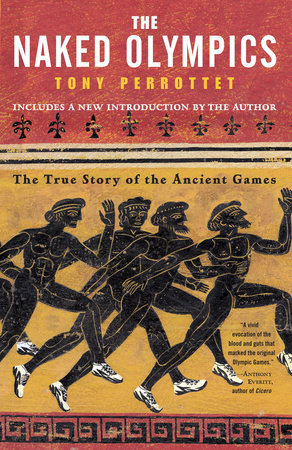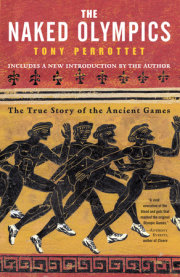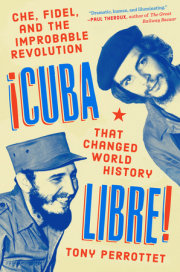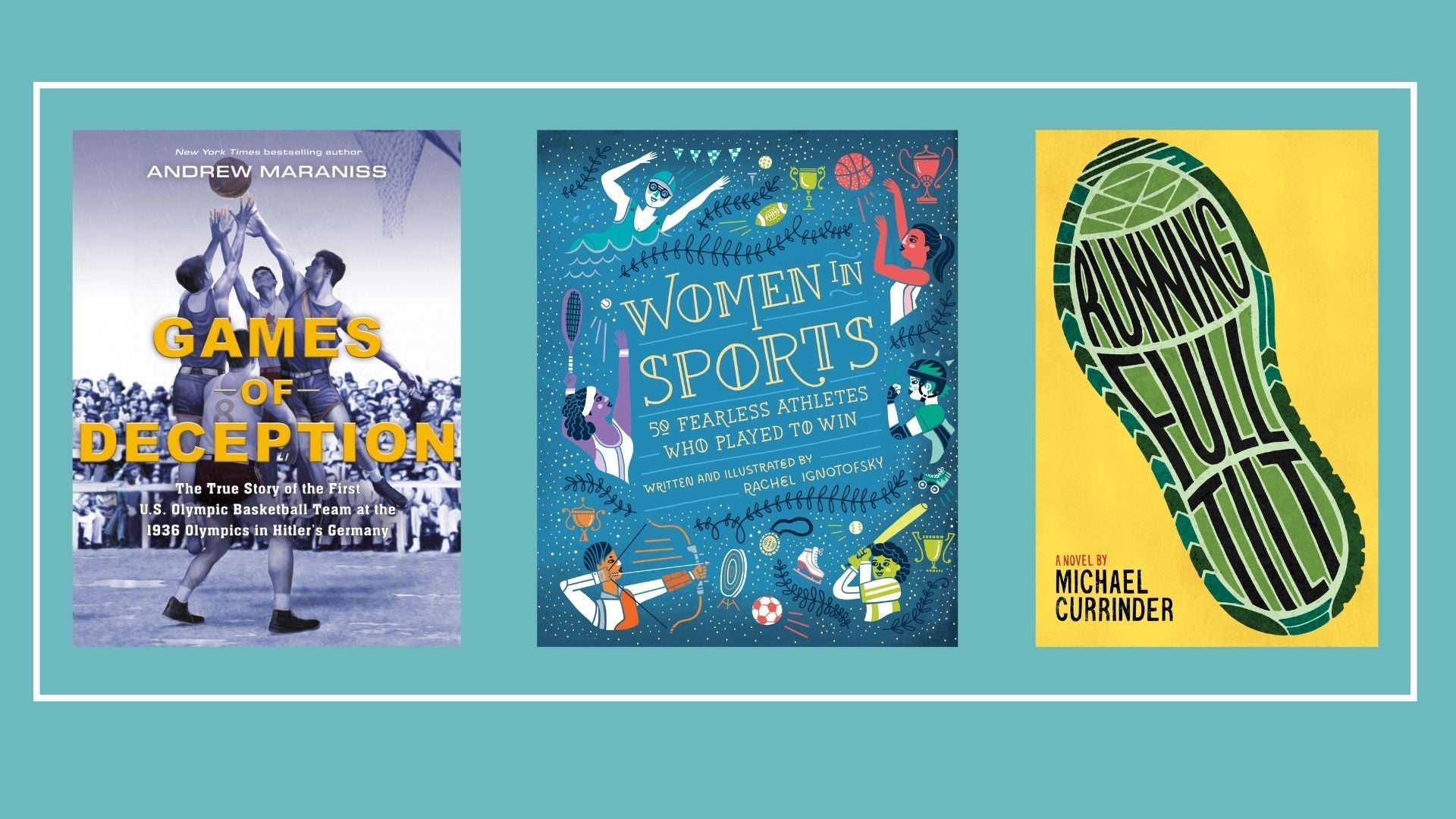Introduction: From Olympia to London
GREEK PATRIOTS MAY look askance at London hosting its third Olympic Games—the only world city to do so in modern times, in 1908, 1948, and now 2012—while the land of the event’s ancient origins has hosted it only twice, in Athens in 1896 and 2004. The more vocal Greek nationalists have described it as an act of historical larceny on a par with the theft of the Elgin Marbles, the sculptures that once graced the Parthenon and now languish in the British Museum. On one level, the resentment is understandable. As this book demonstrates, the classical Games were the greatest emblem of Hellenic culture for nearly eleven centuries, from 776 B.C. to 393 A.D. But the modern revival of the Olympics in 1896, after a 1,500-year hiatus, is not a black-and-white tale of a Greek ritual simply being pilfered. In fact, the nineteenth-century revival might never have occurred without the efforts of the British, particularly a group of eccentric upper-crust Victorians who were obsessed with sports, the classics, and the idealized male form in Greek art.
Even in ancient Britain, as a sodden outpost of the Roman Empire from 43–410 A.D., Greek-style athletics were not unknown, as the ripples of Hellenic culture infiltrated every corner of Roman rule. Provincial towns such as Bath had their thermae, heated bathing complexes with splendid indoor pools and an attached palaestra for exercising in the revered Greek style. Archaeologists have found that even Roman fortresses in remote locations such as Deva (now the northern town of Chester) had their vast bathhouses for stationed legionnaires, complete with large gymnasiums. Although gladiatorial combats were more popular with the British crowds, fragments of pottery, glass, and mosaics have been discovered depicting Greek athletic events such as discus throwing, wrestling, and boxing. Chariot racing, a key event at the Olympics, was also followed with enthusiasm: In 2004, archaeologists unearthed a stadium in Colchester dating from the third century A.D. At four hundred yards long, it is one of the biggest outside Italy. No large-scale athletics festivals seem to have been organized, as they were in the Mediterranean region. But during the halcyon days of the Pax Romana, when travel around the Empire was safe and comfortable, wealthy nobles from the British Isles journeyed to Rome for study and business. Although records are lacking, we can surmise that some would have traveled on to Olympia, where they could experience the most sacred of all classical festivals.
The ancient Olympic Games ended in 393 A.D., when its pagan rituals were no longer tolerated by Christian emperors, and the Roman Empire itself was crumbling under the weight of barbarian invasions. The magnificent shrine where the Games were held, Olympia, was repeatedly sacked, its treasures destroyed, and its location forgotten by all but local peasants. It would not be for another thousand years, during the Renaissance, that Britons would join the European revival of interest in the classical world, and scholars would begin poring once again over rediscovered editions of Homer, Herodotus, and Sophocles. King Henry VIII appointed England’s first professors of Greek at Cambridge University in 1540, and at Oxford in 1541. Ancient sagas culled from Plutarch became grist for Shakespeare and other popular playwrights, while Pindar’s Olympic odes endowed the name of Olympia with a magical, talismanic ring.
As a result, in the 1620s, a certain extravagant, history-loving lawyer named Richard Dover decreed the world’s first revived “Olympick” festival in—of all places—the green hillsides of the Cotswolds. At the time, Puritans were attacking England’s traditional rural festivals for promoting gambling, drinking, and lewd behavior, riddled as they were with pagan relics of fertility rites such as dancing around the Maypole. Dover’s Olympicks was an act of defiance against this dour movement, and as an annual event, it began to lure thousands of spectators of all social classes to sit on muddy hillsides near the village of Chipping Campden. A motley range of “sports” was on the schedule, including hammer throwing, bear baiting, shin kicking, and the brutally violent “fighting with cudgels,” which left the contestants bloody and toothless (an accidental echo of the most gory of the ancient Greek body contact sports, the pankration). The entire festival was marked by heavy imbibing of ale, and a genial air of license. To his credit, Dover also included a “Homeric harpist” in an attempt to lift the tone and thus attract the gentry. One English poet in 1636 hailed Dover as “an Hero of this our Age.” But the exuberant festival could not last. The Cotswald Games were canceled in 1644 due to nearby fighting during the Civil War. Dover died heartbroken six years later.
Our modern conception of sport was actually born in Victorian Britain, as the growing middle class repressed the lawless, brutal rural competitions in favor of more civilized and regulated affairs. Teachers at exclusive public schools (that is, fee-paying schools for well-to-do young gentlemen) such as Eton and Rugby began to espouse the radical idea that physical education was crucial for health, moral well-being, team spirit, and general “manliness of character.” Rules for organized team sports such as football were codified, as were track-and-field events. Europeans and Americans looked on at first in bemusement, then in admiration, as the cult of sports took hold in Victorian society, and seemed to go hand-in-hand with the invincibility of the British Empire.
This new passion for exercise dovetailed naturally with the interest in ancient Greece, which grew throughout the nineteenth century to a virtual British obsession. Interest had been rekindled in 1766, when a group of traveling English scholars from the Society of Dilettanti “rediscovered” the site of ancient Olympia in the Peloponnesus of Greece. By the 1800s, imaginative Oxford and Cambridge dons were idealizing the ancient athletic tradition, and studying Greek statues and vases to revive events like the javelin and discus throw, which had not been practiced for over a millennium.
The admiration for the Greek ideal of the male physique was not purely aesthetic. For upper-crust Victorians, conversations about “Greek love,” of a man for a young boy, allowed the expression of homoerotic desires that were otherwise forbidden. (As historian Linda Dowling has put it, “the prestige of ancient Greece … was so massive that invocations of Hellenism could cast a veil over even a hitherto unmentionable vice or crime.”) Sometimes the talk was less ethereal. The Victorian author Frank Harris tells a marvelous story of meeting Oscar Wilde at the Café Royal in London, where he was pontificating on the Olympic Games to two Cockney youths he was evidently trying to pick up. “Did you say they was naked?” one asked, according to Harris. “Of course,” Wilde replied, “nude, clothed only in sunshine and beauty.” When Wilde was prosecuted in 1895 for “acts of gross indecency,” he mounted a spirited defense of the “pure” male erotic companionship, citing the celebrated Greek sources he had studied in Dublin and Oxford.
The Victorian enthusiasm for sports was accompanied by class-specific distortions. On the scantiest of evidence, scholars espoused the idea that ancient Greek athletes were all “amateurs” who competed without reward except for wreaths. (In fact, except at the Olympics and three other “crown” games, the ancients lavished material prizes on the victors, who gained instant celebrity status; even at the Olympics, the material rewards for athletes were enormous once they returned to their home cities.) This conveniently supported the new movement to keep the working classes out of top competitions, so that educated gentlemen could prove that they were superior to the masses in physical achievements as well as (they believed) mind and character. Under the new rules, any athlete who had ever accepted financial reward for training or competing was disqualified from the most prestigious contests, ensuring that sports would be reserved for gilded youth who had the funds and leisure time to train. This cult of amateurism, which was espoused by official organizations like the Amateur Athletics Association, has been denounced by historian David C. Young as “a kind of historical hoax” twisting ancient Greek texts to maintain an elitist sporting culture.
A more democratic development occurred in 1850, when an English country doctor (and devoted classicist) named William Penny Brookes began another version of a revived “Olympian Games” in a Shropshire village called Much Wenlock. Surrounded by emerald-green hills and attended by country gents, local merchants, and ruddy-faced farmers, the event had the air of a quaint rural carnival—although this time more sober than Dover’s “Olympicks.” It’s difficult to picture the event today without invoking Monty Python’s Flying Circus, for Brookes had a fondness for flamboyant costumes and theatrical rituals. The Olympian Herald wore a cloak and hat with a plume, and announced each competition with a bugle. A key event was the medieval-style “tilting at the ring,” where horseback riders would try to pierce a ring with a lance. Other competitions were a peculiar mix of the highbrow (foot races, cycling, archery, hurdles, and the pentathlon) to the indulgent (“races for old women”). Prizes ranged from silver trophies to a pound of fresh tea. From 1860, ten years after its inception, the games at Much Wenlock began a tradition of crowning its victors with a wreath, in homage to ancient tradition. The presenter was usually the local vicar’s daughter, who was outfitted less like an ancient Greek sylph than one of Queen Victoria’s dowdy nieces, in a heavy bustle dress.
Brookes’s revived Olympian Games are still held in Shropshire every July, and many relics from the Victorian era, including the herald’s uniforms, are on view at the Much Wenlock Museum. In a sense, it is these games that are the seed of our modern Olympics. Not only did imitators of the event spring up around Britain, but Brookes espoused the notion that the Greeks themselves should revive an international version of the Olympics on their own soil. When he learned of a local Olympics being held in Athens in 1859, funded by a Greek businessman named Evangelos Zappos, he sent a Wenlock Cup to be awarded in a long footrace, along with encouragement that the festival should be turned into a much grander event. Brookes repeatedly pressed the idea of an international Olympics upon the Greek minister in London, without success; the Greeks felt that the enterprise would be too expensive for their struggling nation.
Copyright © 2004 by Tony Perrottet. All rights reserved. No part of this excerpt may be reproduced or reprinted without permission in writing from the publisher.






